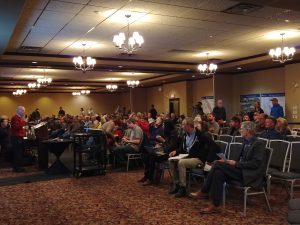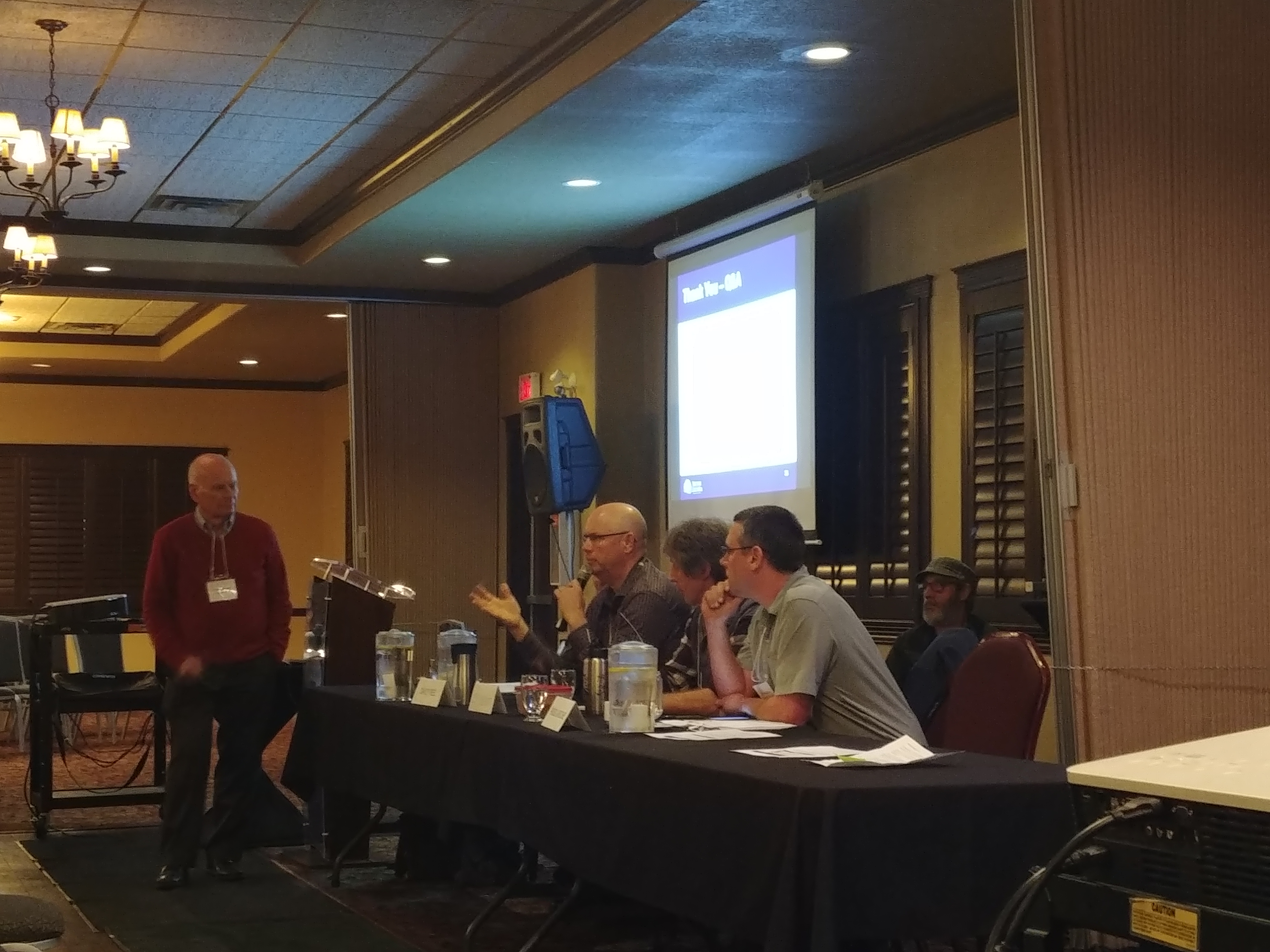Hundreds of residents from the Nelson area brought their passion and their frustrations to a meeting this week on southern mountain caribou recovery. The provincial and federal governments are looking for feedback on two agreements: the Draft Section 11 Agreement which includes the West Kootenay region and a Draft Partnership Agreement which includes the Saulteau and West Moberly First Nations in the Peace region. Personnel from both levels of government are visiting communities in many parts of the province right now to discuss the agreements. Monday’s meeting in Revelstoke saw over 700 people attend and 250 people attended Tuesday’s meeting in Nelson.
Mayor John Dooley opened the evening with a brief speech urging consideration of socio-economic values rather than just simple habitat protections.
“These impacts include constraints that would be placed on back country recreational operations and facilities, timber harvesting land base that would ultimately impact the viability of our local mills and the living wage jobs that they would create,” Mayor Dooley iterated.
However, many felt not enough is being done. There were a number of attendees from the Valhalla Wilderness Society who are very concerned about the fate of the Central Selkirk herd near New Denver, where there’s about 30 or less animals left.
A director with the society, Craig Pettitt, feels there should be more habitat protection, especially in low elevation areas, as well as additional snow mobile closures.
There were shouts of “moratorium” repeatedly from some members of the audience and old growth forest logging was highlighted as an issue many times. One resident asked whether the government could simply pay out some of the tenures held by logging companies.

Russ Laroche with the Ministry of Forests, Lands and Natural Resource Operations felt that wouldn’t solve the problem.
“I think the concern of the forest companies isn’t necessarily compensation for the value of their tenures. It’s the viability of their mills for the long term and of course the jobs that would be impacted,” said Laroche.
Laroche adds that in the area related to the Central Selkirk herd, there are significant portions that are protected, but areas adjacent to those lands are not protected and may still be considered habitat that is important for caribou.
Darcy Peel, Director of the Provincial Caribou Recovery Program, said right now they’re mainly focused on the Draft Partnership Agreement for the Peace region and more intensive planning will begin for this area with Annex 2.
“That’s where the details of caribou recovery for a particular herd will be talked about, discussed with interested parties, and then hoping to find solutions and collaborative ways of implementing that onto the landscape,” Peel said.
If there are any suggestions brought forward around back country restrictions they will be addressed during that planning process.
He also urges everyone to provide their feedback online, which is open until May 31.
“People who are going to be making the decisions on the section 11 and the partnership, whether they’re implemented or changed or whatever that looks like, they’re hearing those things too from the people that have the concerns.”
Although Annex 2 would include additional measures, yet to be determined, through further engagement with Indigenous peoples and stakeholders, many at Tuesday’s meeting expressed fears that the process isn’t moving fast enough.
Background information provided by the Province:
- Under the Species at Risk Act (SARA) the federal Cabinet has the ability to enact orders that would protect caribou and their habitat from further development and disturbance
- Southern Mountain Caribou was listed as a threatened wildlife species on Schedule 1 of the SARA in 2003
- The federal recovery strategy identifies unsustainable predation as the most significant, immediate, direct threat to Southern Mountain Caribou
- Broadly, these unsustainable levels of predation are the result of habitat changes, which have led to changes to predator and prey communities and direct disturbance and displacement of individual caribou





